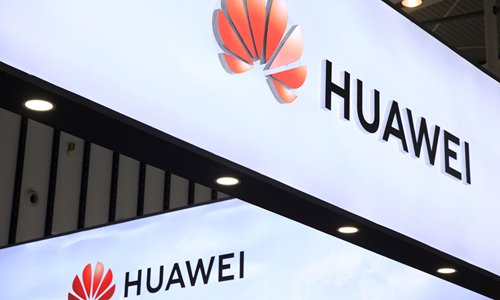HOME >> BUSINESS
HSBC feels heat on Huawei CFO case as China draws up unreliable entity list
Source:Global Times Published: 2019/8/2 22:43:54

Photo: Xinhua
China's unreliable entity list is being drawn up, and any firm that violates laws and rules in the Chinese market would be investigated and dealt with in accordance with the law, the Foreign Ministry told the Global Times on Friday in response to media reports that the UK-listed HSBC would likely be blacklisted by China for helping US prosecutors charge Huawei.
China welcomes foreign investment in the domestic market and will protect their legitimate rights and interests, Foreign Ministry spokesperson Hua Chunying said. "But any firm that runs a business in China must comply with laws and regulations."
Huawei has been doing business in the UK for many years with investments worth more than 2 billion pounds ($2.4 billion), Hua said, noting that the Chinese firm hired more than 10,000 employees and set up a joint research center and actively fulfilled its corporate social responsibility in the UK.
"We hope that the UK adopts an objective and candid stance and independently makes decisions in line with its own interests," Hua told the Global Times.
The UK is expected to provide an open, fair and unbiased business environment for Chinese firms, as it is vital for them to feel confident in investing in the UK, according to Hua.
HSBC has been lobbying the Chinese government not to blame it for the arrest of Huawei CFO Meng Wanzhou, saying it had no choice but to cooperate with the investigation and provide information that US authorities needed to build a case against Huawei, according to media reports.
The bank's probe has helped lead to US charges against Huawei, as it was trying to get the US Department of Justice (DOJ) to dismiss criminal charges for the bank's own misconduct involving US sanctions, Reuters reported in February.
A source close to the matter told the Global Times at a recent interview that the way it helped DOJ acquire documents against Huawei was unethical, as the bank could give out its clients' confidential information anytime for its own interests.
"HSBC set a trap to obtain the PowerPoint (PPT) presentation on Huawei's relations with Skycom, and global companies that do business with the bank should be aware of such malicious tactics," the source said.
Huawei said Skycom was a local business partner in Iran, while the US said it was an unofficial subsidiary used to conceal Huawei's Iran business, Reuters reported.
The PPT has been playing a central role in building a case against Meng, as US authorities accused the company of violating US sanctions on Iran.
There's no proof that Meng committed a crime, and the bank knew about Skycom's business in Iran from the beginning and also understood Skycom's relationship with Huawei, which can be proven by emails between HSBC and Huawei, Ren Zhengfei, founder of Huawei, said in an interview with the Financial Times in June.
Growing numbers of Chinese internet users are calling for blacklisting HSBC, which should be one of the first companies put on China's unreliable entity list.
Some analysts also suggested that the bank's way of cooperating with Washington violated China's law on international criminal justice assistance.
The law is believed by some as China's answer to repeated US long-arm jurisdiction against Chinese firms.
Yan Yiming, a Shanghai-based lawyer who frequently deals with foreign investors, said legal papers aside, the real sword that can cut off long-arm jurisdiction by the US will be country's overall strength and the size and depth of its market.
China's enormous market and huge demand will be the country's best weapon in breaking off such long arms.
"Because China is such an indispensible market, some companies have to scramble to distance itself from matters that China threatens to sanction," Yan said.
Yan said a law on international criminal justice assistance will be used against the alleged actions committed by HSBC. Therefore, the bank will be subject to China's banking law.
For violating China's banking law, HSBC will face administrative penalties, compensation claims from Huawei, and criminal punishment.
Global Times
RELATED ARTICLES:
Posted in: COMPANIES